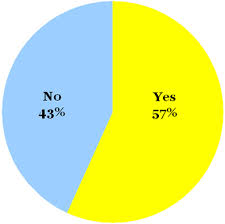
Is the Sky Falling?
Mass shootings. A more-than-ever dysfunctional federal government. The refusal of so many Americans to recognize that mother earth is in trouble. The reoccurrence of violent racism. The apparent abandonment by politicians, corporations and organizations of commonly held norms of behavior.
The stuff of daily news.
So is the sky falling? Are ethical norms dead? Is humanity doomed to a continual degradation in quality of life? Is it unrealistic to be optimistic?
The future, of course, is unknown, but what is known is that it’s hard for pessimists to search for God, at least in the Judeo-Christian tradition. Why? Because the search requires an equanimity based on trust in God.
Not About a Smiley Face
That kind of optimism, of course, has little to do with exhibiting a smiley face, ignoring the bad things that happen to good people. Terrible suffering happens on an hourly basis. Disaster and death come unexpectedly. Not every cloud has a silver lining.
But it’s not just optimism that is required of one searching for God. The closer to finding God we are, the more optimism is replaced by the virtue of hope, which has nothing to do with “wishing for something.”
“Optimism and hope are radically different attitudes,” writes theologian Henri Nouwen. “Optimism is the expectation that things – the weather, human relationships, the economy, the political situation, and so on – will get better. Hope is the trust that God will fulfill God’s promises to us in a way that leads us to true freedom.
“The optimist speaks about concrete changes in the future. The person of hope lives in the moment with the knowledge and trust that all of life is in good hands.”
At the End of the Worst Day
People who have made progress in the search for God know that at the end of the worst day, God still loves us.
But optimism itself is not a bad thing, as long as it is based on reality. And for me, the key is perspective. As a newspaper writer and editor for many years, I tried as much as possible not only to report what’s happening but to help readers with perspective.
And even though we may find it hard to believe, the world is a much safer, if not better, place than ever before, according to many sources.
The rate of homicide, for instance, is sinking in most of the world, according to an article in Psychology Today. Even violence against women, the subject of intense media coverage, is down.
“The U.S. Bureau of Justice Statistics’ victimization surveys show that rates of rape or sexual assault and of violence against intimate partners have been sinking for decades, and are now a quarter or less of their peaks in the past.
Data Say Otherwise
“A similar story can be told about children,” says the article. “The incessant media reports of school shootings, abductions, bullying, cyberbullying, sexting, date rape, and sexual and physical abuse make it seem as if children are living in increasingly perilous times. But the data say otherwise: Kids are undoubtedly safer than they were in the past.”
Part of the problem is the ease with which the media can instantly report whatever happens anywhere, incidents that we wouldn’t have known about decades ago. Another factor is our tendency to think the worst, which is exploited by some politicians.
By its nature, the world is a dangerous place, and concern about all the problems mentioned at the beginning of this blog is warranted. But the world is not nearly as dangerous as it was in the past. So, optimism, based on reality, is warranted.
And for those searching for God, so is hope, another word for trust in God.


